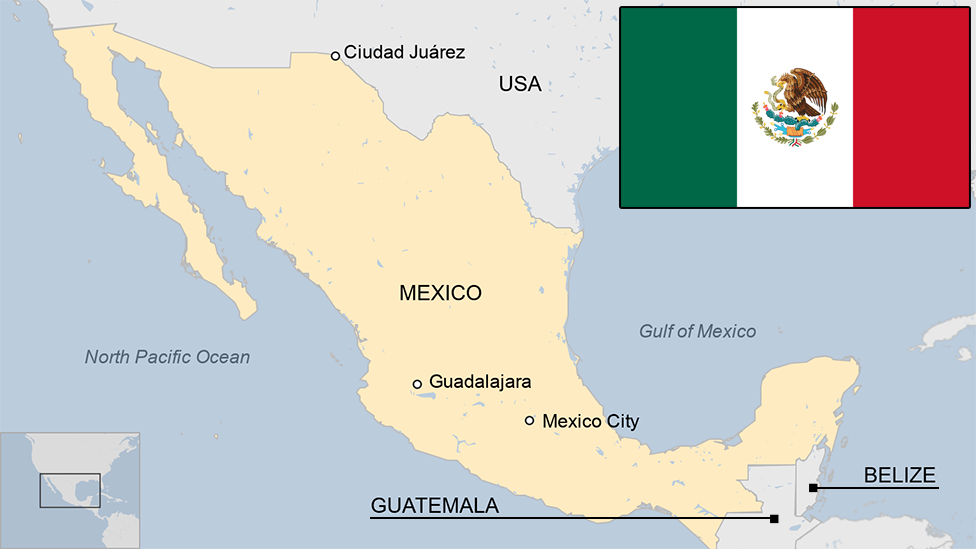Mexico violence: Journalist Norma Sarabia shot dead in Tabasco
- Published
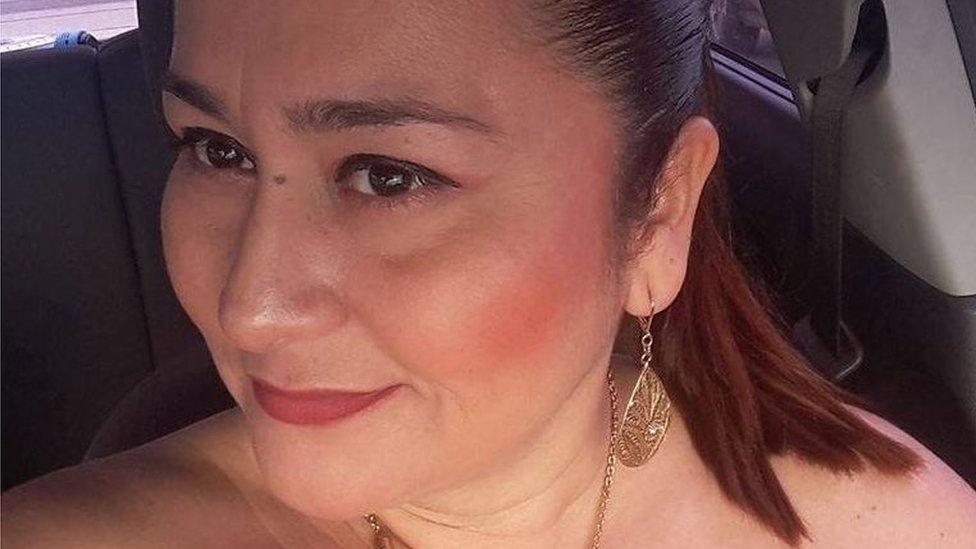
Norma Sarabia was described as a popular figure in the city of Huimanguillo
A crime journalist has been murdered in south-east Mexico, local media report, the sixth reporter to be killed in the country this year.
Two masked men on a motorbike shot Norma Sarabia several times outside her home in Tabasco state, newspaper Tabasco Hoy reported.
She had worked for the outlet for 15 years, most recently as a correspondent in the city of Huimanguillo.
Activists say more than 100 journalists have been killed in Mexico since 2000.
Most of the cases are believed to be linked to drug cartels and political corruption, and the vast majority of the killings go unpunished.
The gunmen fled after killing Ms Sarabia in Huimanguillo on Tuesday night local time.
Mexican media described Ms Sarabia, who also contributed to other local outlets, as devoted to journalism and a popular figure in the city.
"We deeply regret her death and we sympathise with her family,", external Tabasco Hoy editorial director Hector Tapia said on Twitter (in Spanish).
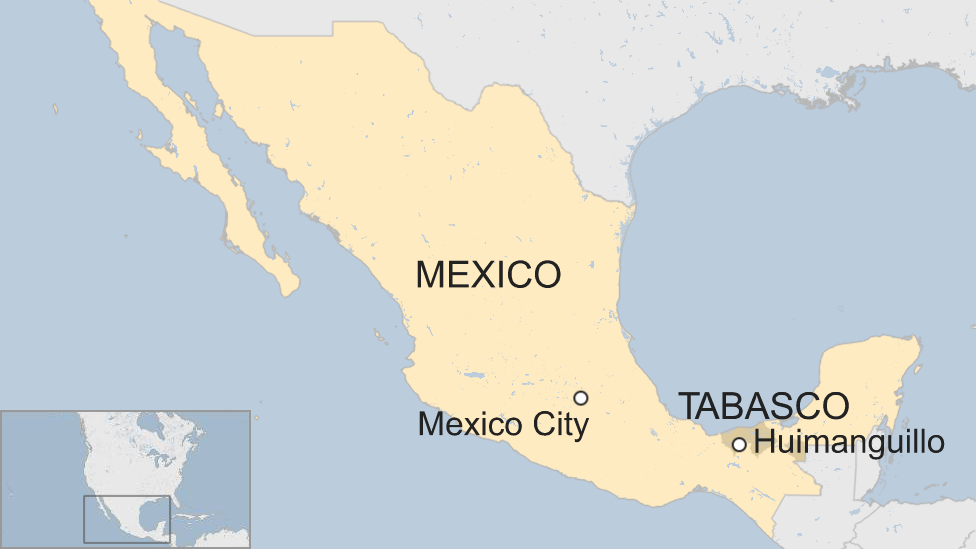
Mexico has been described as the deadliest country for reporters outside a war zone by rights group Reporters Without Borders (RSF).
At least five other reporters have been killed in the country this year, according to the group, including:
Francisco Romero Díaz, a freelance reporter enrolled in the Mexican government's protection programme for journalists and human rights activists, murdered in Quintana Roo state in May
Telésforo Santiago Enríquez, founder of a community radio station, killed in Oaxaca state in May
Santiago Barroso, radio journalist, shot dead in Sonora state in March
Jesús Ramos Rodríguez, radio journalist, killed in Tabasco state in February
Rafael Murúa Manríquez, director of a community radio station, killed in Baja California Sur state in January
Activists say the measures taken by the government of President Andrés Manuel López Obrador, who took office in December 2018 and has vowed to put an end to the murders, have so far been merely symbolic.
Three ways the US is influencing violence in Mexico
In March, RSF said it had asked the International Criminal Court to investigate the violence against journalists, external from 2006 to 2018, saying the cases "take place against a backdrop of passive complicity on the part of the authorities".
"The many murders and abductions of journalists who try to inform the public about organised crime, corruption and collusion between crime cartels and officials... must be regarded as crimes against humanity," the group said in a statement.
- Published28 February 2019
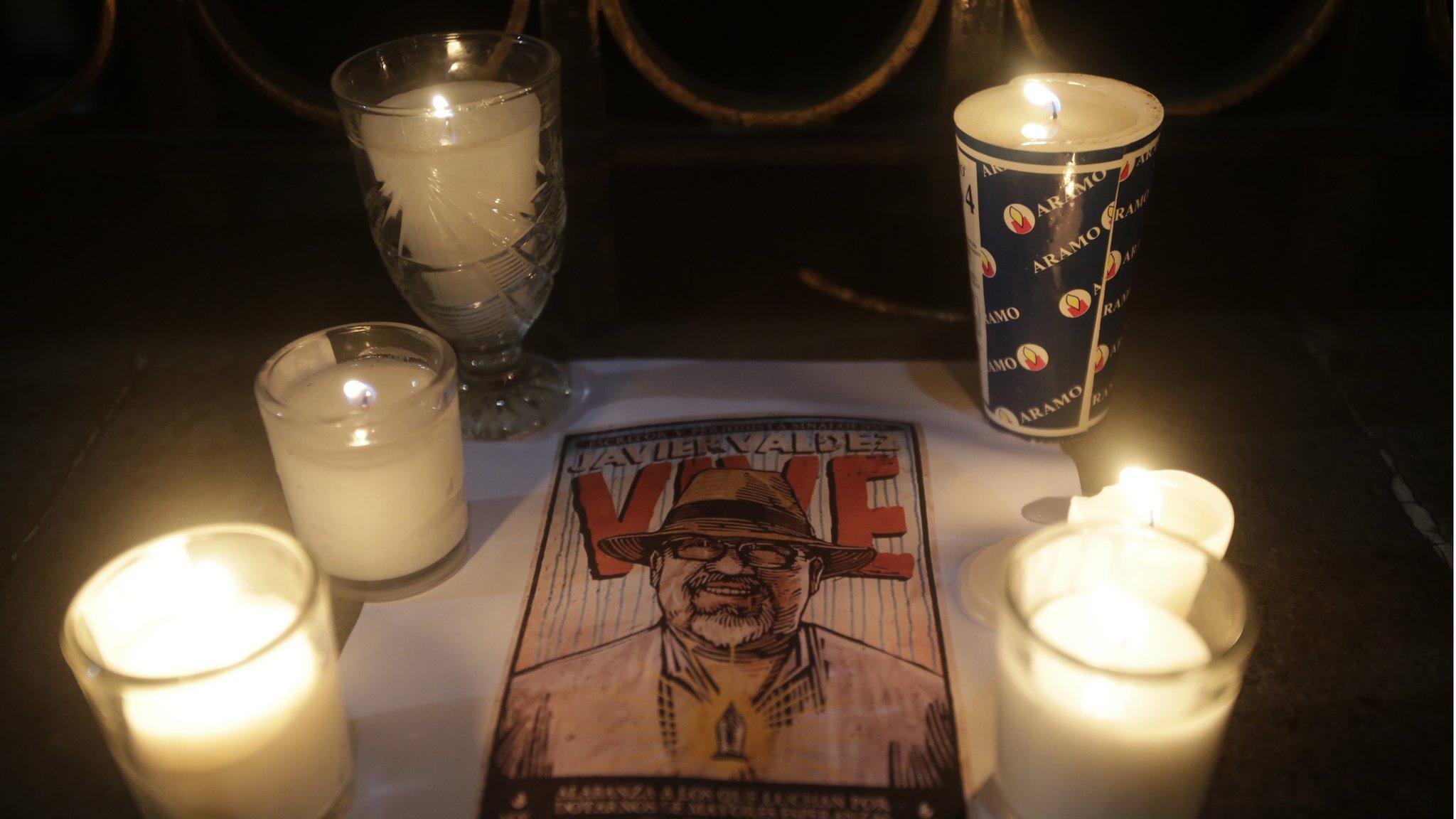
- Published4 July 2017
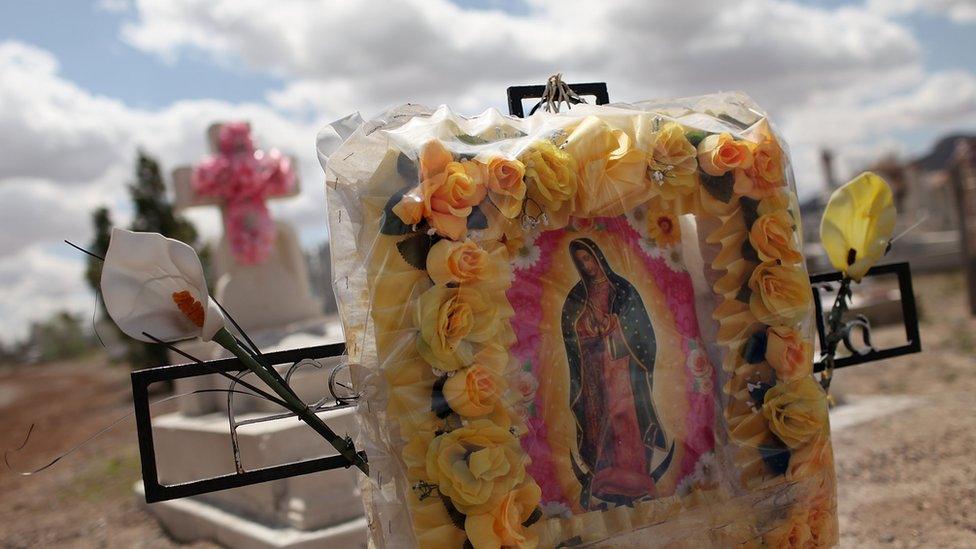
- Published4 October 2024
